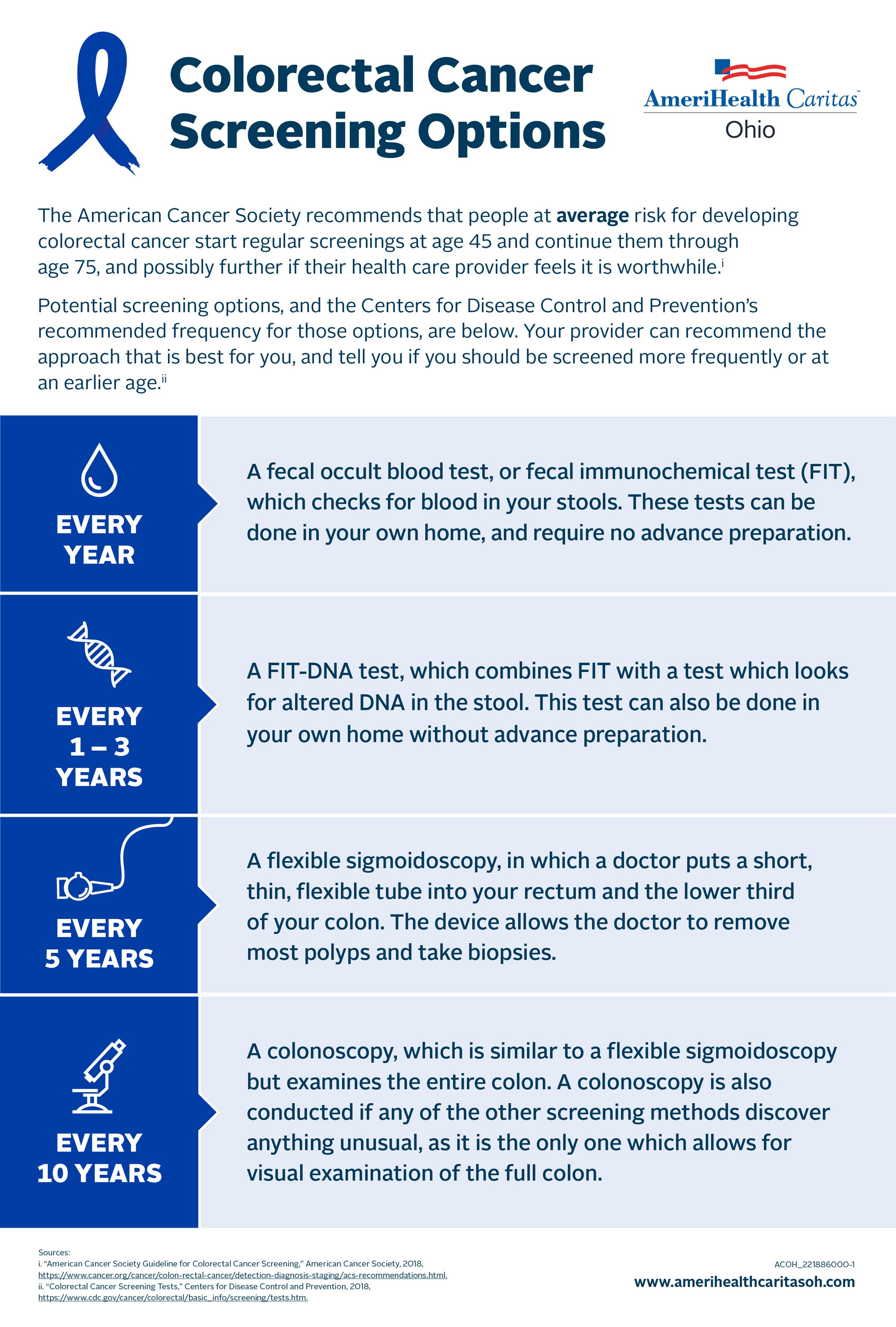 (NewsUSA)
(NewsUSA) - Colorectal cancer remains the third most common non-skin cancer in American adults, according to the American Cancer Society. Regular screening is essential to identifying colorectal cancer early, so it can be effectively treated. If colorectal cancer is caught early, five-year survival rates are as high as 90 percent. However, many people do not seek routine screening, and don’t experience symptoms until their cancers are advanced and harder to treat.
- Colorectal cancer remains the third most common non-skin cancer in American adults, according to the American Cancer Society. Regular screening is essential to identifying colorectal cancer early, so it can be effectively treated. If colorectal cancer is caught early, five-year survival rates are as high as 90 percent. However, many people do not seek routine screening, and don’t experience symptoms until their cancers are advanced and harder to treat.
The American Cancer Society recommends that adults at average risk for colorectal cancer should be screened every five years starting at age 45. Unfortunately, the disparities that persist in many areas of health care continue to affect colorectal cancer screening.
For example, according to the Ohio Department of Health, colorectal cancer is diagnosed in more than 5,200 Ohioans each year, and the state’s colorectal cancer mortality rate among Blacks from 2012 to 2016 was 20% higher than that of whites.
Strategies to reduce these disparities include offering more options for screening.
“I believe that it is important to not pressure people to use one particular screening approach. It is up to them and their doctor to determine the method and frequency that is best in their case,” says AmeriHealth Caritas Ohio Market Chief Medical Officer Steven Spalding, M.D. “The important thing is that everyone get regularly screened.”
Screening methods, and the Centers for Disease Control and Prevention’s (CDC’s) recommended frequency for those at average risk, include:
• Every Year: A fecal occult blood test or fecal immunochemical test (FIT). Both check for blood in your stools. These tests can be done in your own home, and require no advance preparation or dietary restrictions.
• Every 1-3 Years: A FIT-DNA test, which combines FIT with a test that looks for altered DNA in the stool. This test also can be done at home without advance preparation.
• Every 5 Years: A flexible sigmoidoscopy, in which a doctor puts a short, thin, flexible tube into your rectum and the lower third of the colon. The device allows the doctor to remove most polyps and take biopsies.
• Every 10 Years: A colonoscopy, which is similar to a flexible sigmoidoscopy but examines the entire colon. Your doctor also will conduct a colonoscopy if any of the other screening methods reveal anything unusual.
AmeriHealth Caritas Ohio, a Medicaid managed care organization that is slated to begin serving Ohio Medicaid enrollees later this year, will cover the costs of colorectal cancer screening tests on the CDC’s schedule from ages 45 to 75, and earlier and/or more frequently for members considered to be higher risk. However, other Medicaid plans can have different policies, so be sure to check with your health plan.
For more information about AmeriHealth Caritas Ohio, visit www.amerihealthcaritasoh.com.














